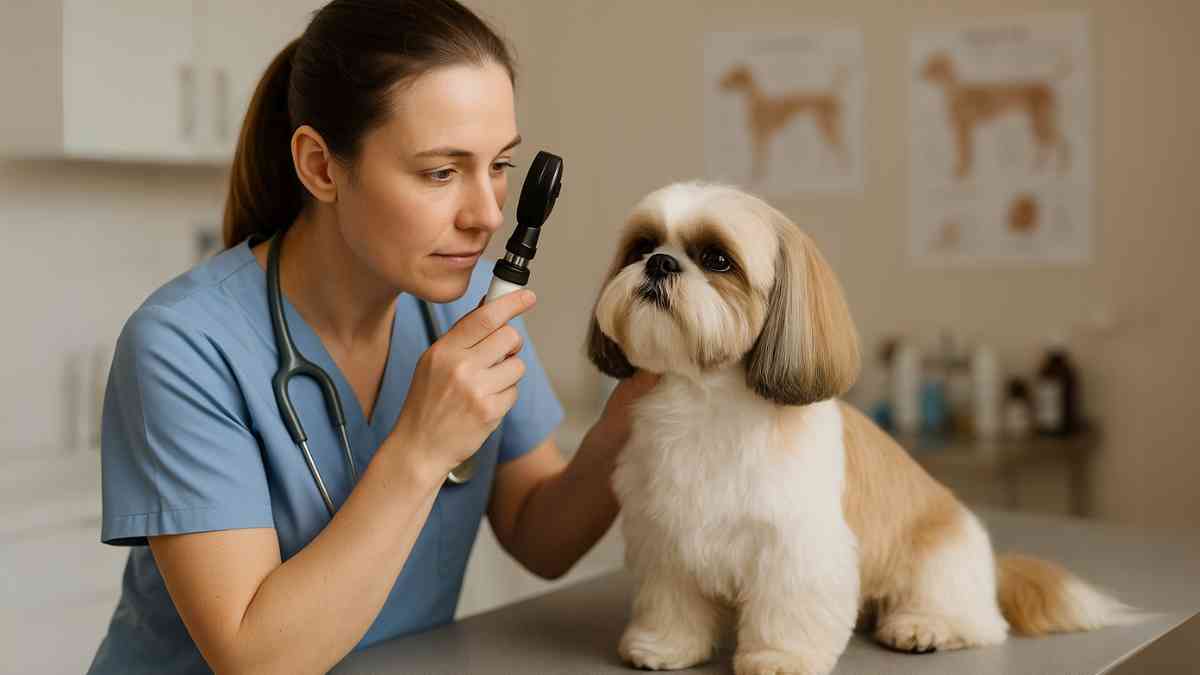Common Vet Treatments for Shih Tzu Dogs: What to Expect

Caring for a Shih Tzu is more than brushing a soft coat or watching those big eyes melt your heart. Behind that charm lies a breed that needs special veterinary attention to stay healthy and comfortable. Understanding what vet treatments for Shih Tzus involve can help you prevent serious health problems and give your pup the quality of life it deserves.
Understanding Vet Treatments for Shih Tzus
Vet treatments for Shih Tzus are professional healthcare services provided by veterinarians to prevent, detect, and treat breed-specific health conditions. Because Shih Tzus are brachycephalic and have unique grooming needs, their care plan includes routine vet checkups, preventive care, and sometimes corrective procedures. These treatments aren’t just for when your dog is sick—they’re designed to keep your dog well throughout its life.
Why This Breed Requires Special Care
Shih Tzus are small, flat-faced dogs with compact bodies and long hair. Their anatomy makes them prone to certain health issues such as breathing problems, dental crowding, eye irritation, and joint troubles. This makes it essential to take them for regular veterinary visits, not only to treat but also to prevent issues from developing in the first place.
Routine Preventive Checkups
Routine exams play a vital role in identifying early signs of disease. During a checkup, the vet evaluates your dog’s heart, lungs, weight, eyes, skin, ears, and teeth. For Shih Tzus, eye and respiratory evaluations are especially important. Most vets recommend a checkup at least once a year, though older dogs or those with chronic issues may need more frequent visits.
Vaccinations for Protection
Vaccines are essential in protecting your Shih Tzu from serious diseases. Core vaccines like rabies, distemper, and parvovirus are required for all dogs. Non-core vaccines, such as for kennel cough or leptospirosis, may be recommended based on your location or lifestyle. These vaccines are typically given during your vet visits, either annually or based on a specific schedule.
Parasite Control: Keeping Pests Away
Shih Tzus are indoor dogs but aren’t immune to fleas, ticks, or heartworms. Monthly flea and tick preventatives and heartworm medication are important. A simple chewable pill or topical treatment can save your pet from severe health risks caused by parasites.
Dental Health Matters
Due to their small mouths and short snouts, Shih Tzus often experience dental crowding. This makes them highly prone to periodontal disease. Vets recommend annual dental cleanings under anesthesia and daily brushing at home. If left untreated, gum disease can cause pain, tooth loss, and infections that spread to the heart or kidneys.
Breathing and Respiratory Issues
One of the most well-known health problems in Shih Tzus is related to brachycephalic airway syndrome. Their narrow nostrils, elongated soft palate, and small trachea contribute to snoring, wheezing, and exercise intolerance. In some cases, surgical correction is needed to widen the airways. Your vet may advise lifestyle changes too, like keeping your pet cool and limiting intense play.
Eye Care Is Crucial
Those big, soulful eyes are one of the Shih Tzu’s defining features, but they’re also a source of concern. Common issues include dry eye (KCS), corneal ulcers, and tear staining. If your dog blinks excessively or has red, cloudy eyes, it could be a sign of a problem. Treatment ranges from prescription eye drops to minor surgical corrections.
Skin and Allergy Treatments
Shih Tzus often suffer from itchy skin, food sensitivities, and allergic reactions to environmental triggers. Regular grooming and bathing with vet-approved shampoos help reduce flare-ups. If symptoms persist, your vet may prescribe antihistamines, steroids, or specialized diets to manage chronic allergies.
Ear Infections and Maintenance
Their floppy ears and hair-filled ear canals can trap moisture and debris, making ear infections quite common. Signs include scratching, head shaking, and foul odor. Vets treat these infections with antibiotic or antifungal ear drops, and they may recommend regular ear cleaning routines to prevent recurrence.
Joint Health and Patella Problems
Shih Tzus are also prone to luxating patella, a condition where the kneecap slips out of place. Mild cases cause occasional limping, while severe forms can affect mobility. Treatment may involve weight management, physical therapy, or in some cases, surgery. Supplements like glucosamine are often recommended for joint health.
Urinary Tract and Bladder Stone Issues
This breed has a genetic tendency to form bladder stones, especially if not hydrated well or if their diet is high in certain minerals. Vets typically diagnose this via ultrasound or x-ray. Treatment can include dietary changes, medication, or surgery depending on the stone size and type.
Grooming-Related Vet Visits
Shih Tzus require regular grooming to prevent matting and skin infections. If left unmanaged, skin underneath matted fur can become sore or infected, requiring vet treatment. Some pet owners take their dogs to the vet for grooming when skin conditions are present or when the dog won’t tolerate grooming at home.
When Emergency Vet Visits Are Needed
Some signs should never be ignored. If your Shih Tzu experiences difficulty breathing, sudden collapse, constant vomiting, eye injury, or seizure, seek veterinary help immediately. Shih Tzus may also overheat quickly, so panting or lethargy in hot weather can be a sign of heatstroke.
Choosing the Right Vet for Your Shih Tzu
Look for a veterinarian with experience in treating small and brachycephalic breeds. Ask if they’ve treated Shih Tzus before. A vet who understands the specific health needs of this breed will provide more accurate diagnostics and better preventative care. Also, having a good relationship with your vet means better communication and trust over your dog’s lifetime.
Costs of Common Vet Treatments
On average, expect the following costs:
- Routine exam: $50-$100
- Dental cleaning: $300-$700
- Vaccinations: $80-$200/year
- Surgery (e.g., airway correction or patella repair): $800-$2,500
- Emergency visits: $100-$500 (excluding treatment costs)
Consider investing in pet insurance or a wellness plan to reduce long-term expenses.
Benefits of Consistent Vet Care
Keeping up with regular treatments offers enormous advantages:
- Early detection of health issues
- Pain prevention and management
- Longer, happier life span
- Lower lifetime medical costs
- Stronger bond between you and your dog
Conclusion
Shih Tzus are undeniably lovable and loyal. But their charm comes with responsibility. Understanding the importance of vet treatments and what to expect at each stage of your dog’s life can make all the difference. With routine care, early intervention, and a committed vet, your Shih Tzu can enjoy a life full of comfort, joy, and vibrant health.
Give your Shih Tzu the healthy life it deserves—start with expert vet care today!




